The Race Card
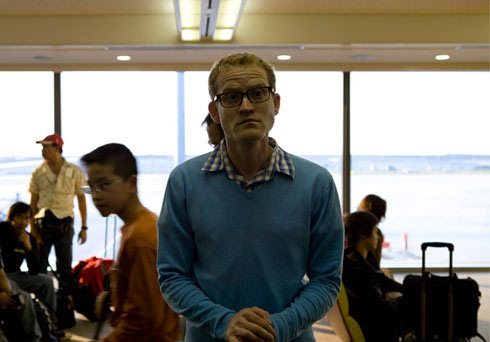
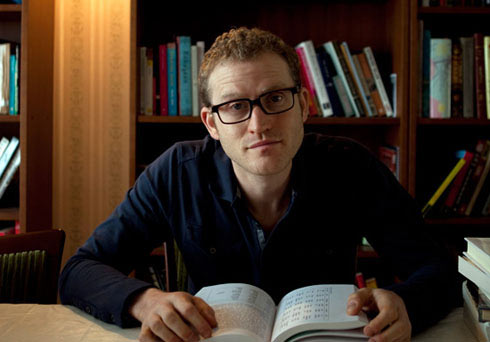
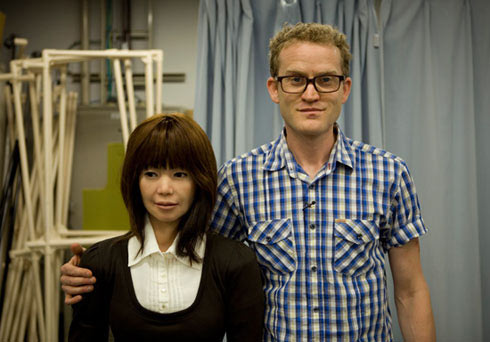
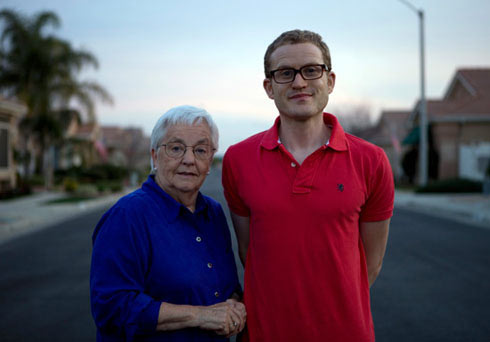
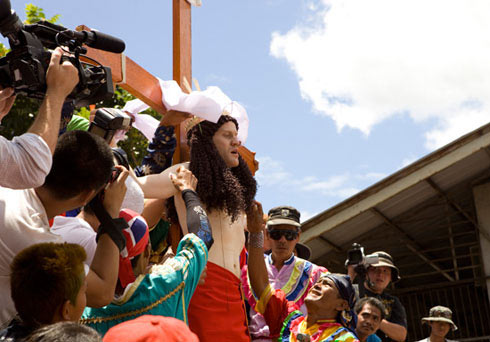
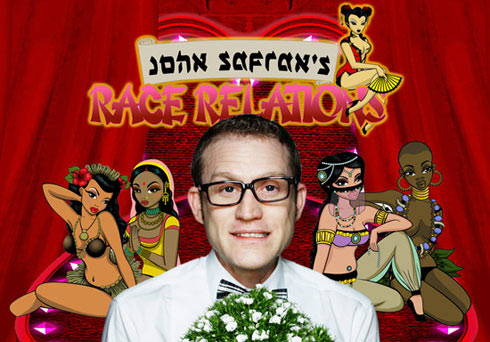 Words: Gabriel Knowles Images: ABC
Words: Gabriel Knowles Images: ABC
For a man whose list of notable achievements includes placing a fatwa on Rove, being exorcised of demons, placing a curse on an ex-girlfriend and streaking naked through Jerusalem it’s hard to fathom that he could top them all. But when John Safran headed off to the Philippines to take part in a crucifixion re-enactment, complete with real, appendage piercing nails, he more than outdid himself. John Safran explains to Gabriel Knowles why his new series isn’t quite as outrageous as it sounds and how he’s managed to wield enough power to finally get himself nailed to a cross.
Gabriel Knowles: There isn’t long until you go to air now. Is it all going according to plan?
John Safran: We’re still madly and furiously editing the very last episode so we’ll get past the post just in time. We could have finished by now but we haven’t, it’s mainly my fault. This whole show has got more of a story arc than my previous shows and I think there’s a few kind of spiky things in it where people will be like ‘I haven’t seen that before’ which should be good.
GK: In the past your shows have always had very strong themes. What’s the premise behind this series?
JS: We started off with the story of cross-cultural love. If you’re brought up in an ethnic group or your friends and family are should you just stick with it or marry someone outside of it? Obviously because I’m Jewish and it’s such a big issue in the Jewish community so we presented it as my investigation into that as it relates to me. So it’s credible as opposed to to me just doing a series of stunts for TV. The catalyst is three decades in the Jewish community. I think it will relate to a lot of ethnic groups in Australia.
GK: It looks as if the quality of production is a bit higher this time around. How else does Race Relations differ to some your previous offerings?
JS: I’m not really sardonically commenting from the sidelines, this time I talk quite literally about my feelings on issues. For example at the start of this show we thought an aspect of it would be all about racism. There’s nothing more boring than being anti-racist. How boring is that? So we thought this series would be me being ironically racist all over the place but it was really hard to sell to a TV audience that I have these genuine racist thoughts. Most of the stuff is pretty un-malicious even though it’s outrageous and I’ve noticed in the past that tends to get you off the hook.
GK: You did a bit of a whirlwind tour of the world for this series. Does that shine through into the series?
JS: The actual shoot was crazy, we spent seven weeks overseas in 12 countries. I usually fall into this mental state where I become really uninhibited. This time was uninhibited even for me. I had more support this time around as well, well a slightly bigger crew. And slightly more leverage than usual, as in I’m old now and I’ve got a few shows under my belt so there was less of me stuttering around and more of me trying to push things through to get what I wanted. That was a big difference this time around which was cool.
GK: Such as?
JS: Lots of what you have to do, for example, is mega expensive. Like ‘oh we’re going to go overseas and do this and it requires prosthetic make up that costs heaps of money’ and all that kind of stuff. I was more involved in making those decisions this time around. I think I just cut to the chase a bit more this time and wasn’t very shy about it.
GK: I know that one whole episode of the show is set in Chicago. What was the rationale behind that?
JS: Chicago was great, I think we ended up there because it’s Barack Obama’s home town so we kind of liked that, and obviously the show’s about cross cultural relations so there’s quite a few Barack references over the series. There’s also this hot dog restaurant in Chicago called the Weiner Circle where there’s often this tension between the black staff and the white customers. They all start off the night sarcastically ribbing each other and then as the night goes on and everyone gets drunker and drunker it gets weird and uncomfortable. It’s one of those places that people go to after clubs. I saw it on this documentary called This American Life and they’d done a serious study of this place so we decided to go there and put my weird spin on it.
It’s about at what point does everyone just being cheeky and sarcastic cross over into revolting? There are all these strange cross purposes, for example a black person will defend themselves against a white person attacking them by calling them a faggot. So they’re defending themselves against racism by being homophobic, so everything becomes really confusing which is kind of compelling to watch.
GK: There was quite a reaction to your being shown in the Australian media re-enacting a crucifixion in the Philippines. Was that a deliberate ploy or was it purely coincidental?
JS: We didn’t release any images or footage of it, we just wanted to just shuffle off and edit our show but there were some film crews from Reuters there and they got some of the shots and then the Australian media put two and two together and then it blew up. But now that we’re editing the show we’re actually happy that there were other camera people there because we’ve bought some of their footage. We didn’t quite capture the glorious wide shots but Reuters did! I was looking though their footage and I was wondering why the hell we didn’t hire their guy because he seems to get every shot!
As far as I know there are only two little villages in the Philippines that do it. I’m actually annoyed I didn’t get to do it in the other place because the place I did it at makes you wear this stupid wig and outfit but the other place doesn’t. Maybe I’ll go back next year and do it at the other place. I’m not sure why, it’s not as if there’s a crucifixion society or anything but it’s worked out like that at this little village that you have wear a wig and dress like Jesus in the olden days.
GK: Wouldn’t that have been more at home in your previous series?
JS: For some reason my demented mind ended up there. I was thinking about why I didn’t do it for the last show (John Safran vs God) but I didn’t have the leverage with a TV station to let me get crucified so this time I took advantage of it. Most people take advantage of the system so that as they move up they get more money but I’m so screwed in the head with every show I just work out a way to get away with more. I probably didn’t have the power in this town to get crucified last time but now I do.
GK: Are there any concepts that you’re particularly pleased with how they turned out?
JS: The ladyboy thing I’m quite happy with because we didn’t really think it through before we went overseas. We didn’t really have a good idea, well we did but then on the spur of the moment we figured out a way to tie it into the story arc and it’s a bit of a climax to the series. Even though we just kind of made it up on the spot. That was pretty exciting because often ideas like that can fall over, a lot of our smaller ideas on this show rolled into something bigger.
We try to plan each idea out thoroughly but when you get overseas there are so many variables that can change it. But very rarely do we just go over and do something and have no idea. Actually a few times we had spare days and we tried to go out and find a story and it never worked that well. If it was that easy you would just do it quickly and everybody would do it. The thing that makes it hard is thinking up a believable motivator, the audience has to be convinced that I’m really motivated to do the things that I do. Particularly in this series we’ve treated me like a character who needs a valid reason why he wants to do these things. And not just for TV but a valid reason for wanting to do it for my life. You know like “I’m John Safran and I’m on this actual journey” that’s outside the context of the show.
GK: What do you hope people will take out of it?
JS: I reckon especially for ethnic Australian’s, even though it’s a stupid comedy show, it will really resonate and bring to TV a conversation that goes on behind closed doors. I reckon maybe white anglo saxons watching our show will be wondering why this is such a big issue. If you talk to anyone with cultural ties for five minutes and you bother to start digging you realise it’s such an issue. You’re torn and your parents start to hassle you.
I mean now I’m so old people just let you do what you want but when I was younger and I went out with a non-Jewish person there was a lot of pressure for family and friends. It’s pretty raw and powerful stuff they drop in your lap. But it’s not a self-rightous show where I’m trying to shove my views down people’s throats, unfortunately all the jokes are at my expense.
John Safran’s Race Relations airs on ABC1, Wednesday October 12 at 9.30pm
Next Article: Angelique Houtkamp – Tattoo Mystique



